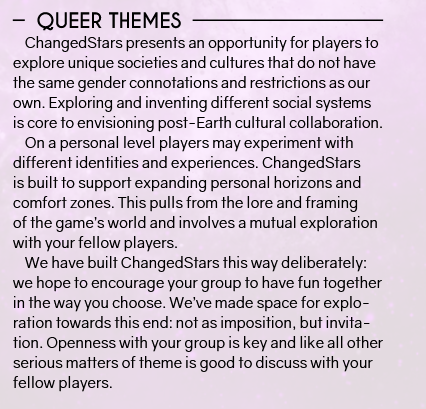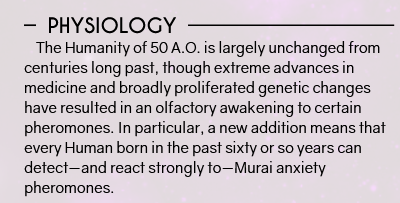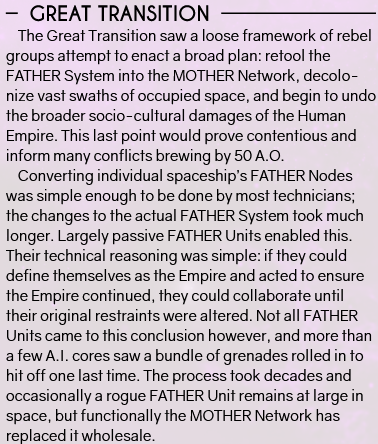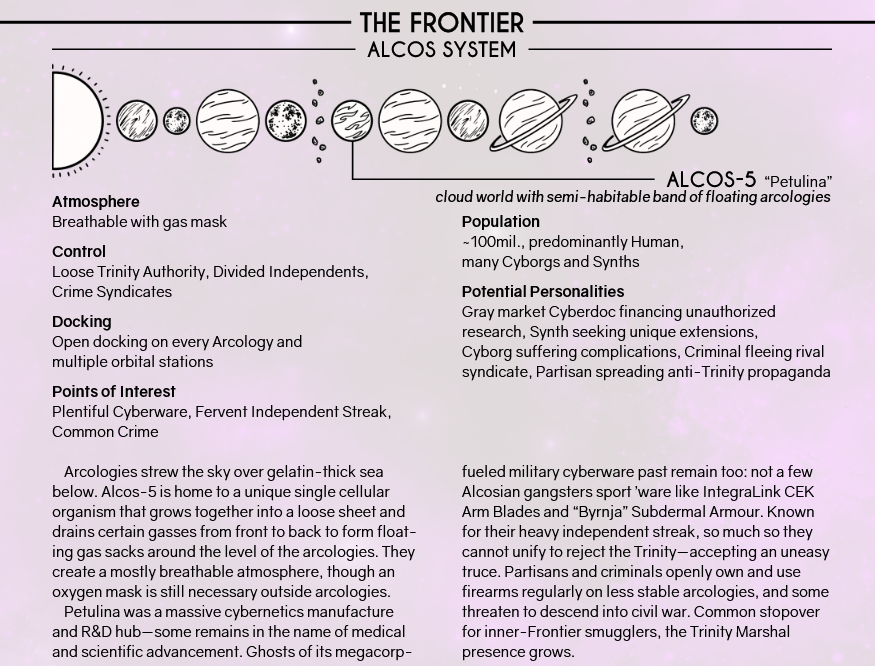RULES REVIEW
Our Bodies Are Everything
Hundreds of years ago, some million people were dragged to the Western World in chains. Some of them were Yoruba. Some were Vai. In their homelands, they knew themselves by these names and many others. They
organized themselves by language and by culture. This was irrelevant to their slavers, who didn't care what their slaves said or thought unless it was about them. The slaver went out and made new names and
erased the old. This is white. This is black. This is human. This is not. From this point, all understandings of race originate, soon to proliferate across the entire earth, going everywhere that the slaver did.
Despite what you may have been taught in university, or picked up through cultural neurosis, there is no genetic basis for race. People all over the planet, with no African origin at all, are branded with "black".
In the Philippines, multiple indigenous groups are forced under the label of "negrito", meaning "little black". The isle of Papua New Guinea comes from the name "Guinea", which was once used to refer to the entire
West African coast. Some will tell you that these namings are mistakes, borne out of a history of ignorance, that there was a primitive understanding of race that we have now overcome. The barriers we erected are
sturdy, the categories are sound. This is as much a lie today as it was four hundred years ago. Race has no bearing on a person's heritage, culture or genetic structure. It is a hierarchy of power, enforced from
the top down.
Starting out with this topic may strike you as strange in a TTRPG review so I'll get to the meat of it. When a TTRPG, or any work of art, ratifies race as a genetic grouping passed down from biological parent to
biological child, it reinforces the structure of racism. Regardless of the setting of a game, writers and readers live in the real world. Here, we must contend with our histories. What we have done to each other.
What we have yet to do. There is no way to neutrally, or positively, engage in the biological determination of race because race is not true. Measures have been taken to avoid this controversy, sincerely or
insincerely, by the wider TTRPG community. They think that by replacing the names of things, they've replaced the meanings. Trading out race for species was an attempt by many to avoid this issue but has done
very little to stem it since after all, the structure is the issue not the map of the structure. This doesn't mean that all works who use fantastical races (even if they call them species) are racist and should
be boycott. This is rather a way of thinking about the world and our assumptions about it. To engage with the truth of race will make better art about race.
Our Bodies Are Nothing
Changed Stars, to its credit, uses the narrative trappings of alien racial groups as inoffensively as it can possibly be. The aliens in the setting are not stand-ins for real world racial groups. Nor are they
designed with absolving whiteness in mind. It is clear through the work's narrative voices and through its ruleset that the creation of these species stems from an enjoyment of xenofiction and not from the
disguised racial biases all to common in the genre. The creatures depicted within the work are atypical for speculative fiction games. Casting off the baggage of "honorable warrior" species, "violent dictator"
species, "wild native" species, there isn't much negative to say about the construction of the species themselves. Only what the categories represent.
You see, the species in this game are not quite metaphors for racial hierarchy, although at times such a thing can be read into them. Instead, it would be more accurate to say they are representing the
diversity of human experiences. Each species has an established style of behavior which is influenced by their biology. Murai give themselves to their hive in totality, Thren are highly empathetic, Nouseguay
are individualistic and shun each other's contact. Then, these stereotypes are near immediately contradicted. If you want to be a player character, you must lack one of these traits to a degree. From there,
further mentions of how sexual orientations, genders and neurotypicalities flow. By introducing a normal and gently pushing players to break that normal, the game makes a statement on what assumptions we
have made about our world and these things. It also opens the floor to natural depictions of queerness and neurodivergence. What does it look like to be autistic in a world where your entire body is defined
by your ability to get along with people?

When it comes to species as a metaphor for the human experience, the metaphors are more salient when it comes to nearly anything but race. This is not to say that sex or sexual orientation or not also
hierarchies of power. Rather the opposite in fact. When it comes to gender, sexuality, neurodivergence, disability and so on, writers seem more open to the idea that the categories that we have constructed
are not innate parts of human experience, backed by genetics. In this reluctance to accept these categories as natural and in the effort to defy these categories, the stories that are written with this
mindset talk of queerness honestly. It is simply a richer experience. So when Changed Stars excellently questions the way that we, the readers, have been living all this time, the message would have been
improved by more broadly questioning the construction of race.
That is not to say that there are no attempts at doing so either. Within the human lore section, there is a paragraph that tells us humans are starting to develop the ability to understand Murai pheromones.
With physiques similar to that of praying mantises, and a culture inspired by hive insects, this species is one of the most foreign to our current understanding of the world. Particularly to me, actually,
as I suffer from anosmia. Despite the difference in biology and in culture, humanity has changed to accommodate the Murai, blurring the line between "us" and "them". I don't know if this was an intentional
play towards the constructions of race in the real world. Nor does it particularly matter to me. It was an interesting thing to think about and something that I wish was extended further into the game's
setting. It would have gone well with the messages of anti-imperialism and the defiance of hegemonies.

The Good, The Bad and the Frontier
On a less esoteric level, I found the setting of the game to be quite interesting and thoughtful. Currently, there is an abundance of "humanity rules" and "alien exploration" media within the science fiction
genre. These often mimic the tropes and aesthetics of "manifest destiny" narratives of cowboy films. Or, these days, rationalist writings. Changed Stars immediately makes its political stance on these peers
clear; these other works are portraying imperialism and it wants nothing to do with them. In other games, the Human Federation is at most a neutral body. Humans have put aside all differences on earth, allegedly,
and go out in search of collaboration with the aliens all around them. They categorize these aliens neatly. These are from x planet and they do y and in our federation, they serve us this way. It's a very
tidy affair. Changed Stars is not tidy, the history of people is messy. There is violence, there is war. The efforts of the Human Empire to coalesce all of their history into a homogenous slop is treated as
akin to a cultural genocide and their efforts to spread throughout the universe is treated, without any illusions, as an act of imperialism. This was a refreshing take on what has been baked into the spacefaring
genre since its inception.

The main conflict within the game, although there are others for astute and experience gamemasters to pick up on, is that the Human Empire waged a terrible war against the Murai and the Thren. These groups were
seen as delicate, sensitive and generally without merit beyond labor. Although some of you may be thinking of race, it's more accurate to describe this conflict as one of gender. Although there are women who
are humans and there are men who are Thren, the human empire is explicitly patriarchal. Their high class AI was called "Father" even. This is versus the Murai who, like other hive bearing creatures, use Queen
to describe their matriarchs and the Thren who have gender diversity as one of their core values. In the end, the alliance between the Murai, the Thren and rebels from earth win the war. The earthen empire is
forcibly dissolved. Those who lived on remote outposts ignored these orders and continued to play at the same patriarchal games they always have but in time, these too will stop. There is no true way to defeat
progress. There is only delaying it.

Unlike other games with similar politics, Changed Stars does not attempt to portray a violent yet utopian world. The Trinity are unambiguously the "good guys" of the setting but even they have their own problems,
which gives space for the player party to engage with the wider world. Internal corruption, organized crime and reactionary elements who oppose the Trinity are all present within the work. If players so desire
it, they needn't be heroic characters at all. There are options to play thieves, saboteurs and assassins. Altogether, I find this an interesting decision in such a positive work. The choice of continuing to
improve the world has been put on the player party's shoulders. They are free to accept. They are also free to decline. This gives the players a form of narrative agency that similar works deny them.
With all this committment to anti-imperialist and feminist themes, to player agency, to flawed-but-improving worlds, it comes across as strange that the majority of obvious conflict happens on the Frontier. A
solar system near the edge of the Trinity's territories (ostensibly considered part of it) is called the Frontier. Much like our vision of the border between "indigenous" and "civilized", the Frontier is a
lawless land, lacking the protection of the Trinity. Crime runs rampant there. Enemies are all around, holed up in isolated towns, responding with aggression and fear to the well meaning Trinity peacekeepers.
This is a call towards the cowboy film yet again, something that the work has spent hundreds of pages trying to escape from only to bring it back in this naked form. It weakens much of the earlier lore and
causes colonized players to question the intention of the Trinity after all. When seeing that the Trinity peacekeepers have tenuous control over this land and that they are trying their hardest to capture it
and to enforce their government structure upon it, I can not help but recall the acts of Nathaniel Bacon and his kin who made much the same justifications. Of course, the narrative situation is different.
In-universe, the Frontier is the last holdout of reactionary elements. But in our real world, these holdouts do not take the form of dark hat cowboys, they are instead the children of wealthy people who have
used this inherited wealth to try and politically recapture proleteriat governments. Sometimes, they even succeed. Using the name "Frontier" specifically also harkens back to the dark past of westward expansion.
This part of the game should have been left out entirely, replacing it instead with a high society themed area or something like it which makes more clear how structures of power work and how they are subverted.
